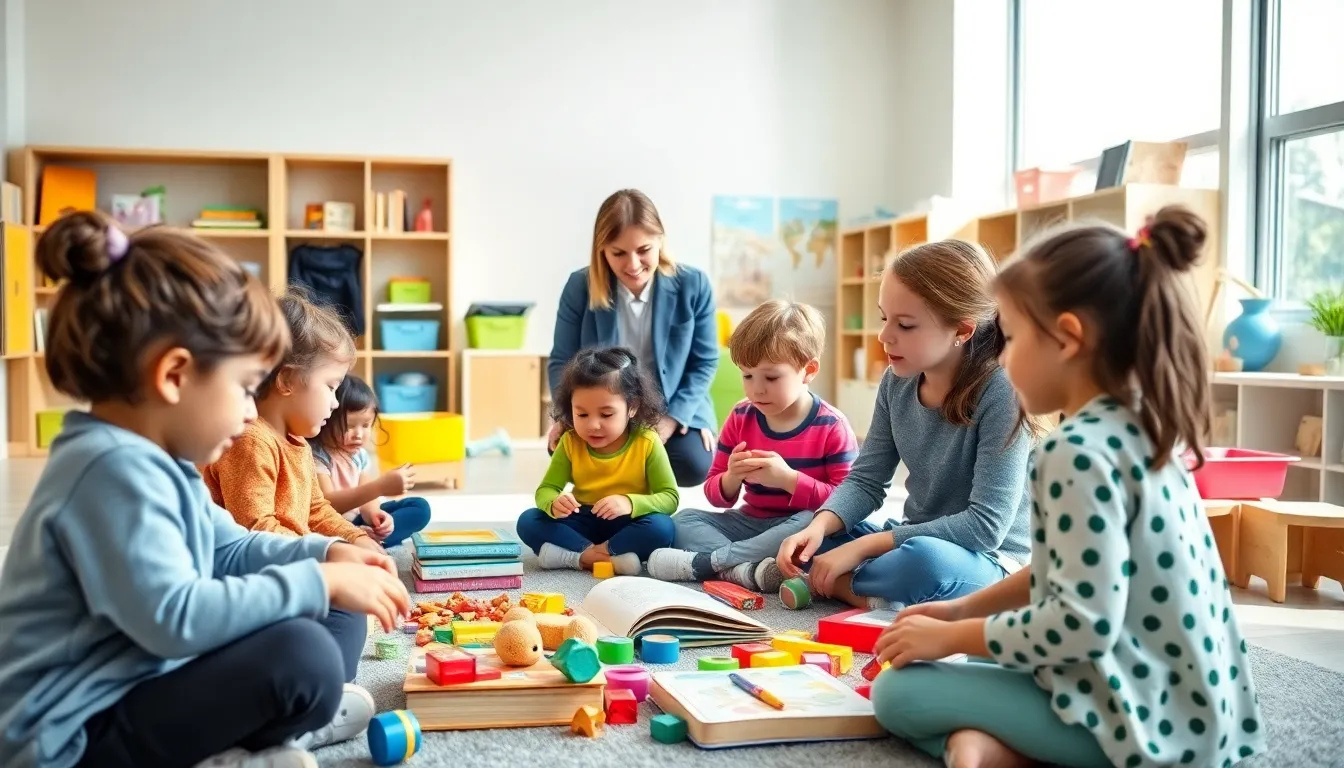Table of Contents
ToggleTaking a journalism class can be a transformative experience. It’s not just about learning how to write; it’s about discovering the power of storytelling and the impact it has on society. I’ve found that diving into the world of journalism opens up a new lens through which to view current events and human experiences.
In these classes, I’ve gained essential skills like research, interviewing, and critical thinking. Each lesson challenges me to dig deeper and ask the tough questions. Whether you’re aspiring to be a reporter or just curious about the media landscape, a journalism class equips you with the tools to navigate and contribute to today’s fast-paced information age.
Key Takeaways
- Transformative Learning Experience: A journalism class goes beyond writing, encouraging students to understand the powerful role of storytelling in society.
- Essential Skills Development: Students gain vital skills such as research, interviewing, critical thinking, and ethical journalism, which are crucial for effective reporting.
- Hands-On Practical Assignments: Engaging in real-world scenarios, students develop their writing, editing, and multimedia storytelling abilities through practical exercises.
- Critical Awareness: The curriculum emphasizes the importance of recognizing bias and differentiating between fact and opinion, fostering a critical approach to media consumption.
- Career Pathways: Journalism classes often lead to internships and job opportunities, preparing graduates for diverse roles in the media industry through networking and practical experiences.
- Adaptability to Modern Media: Coursework includes digital journalism and data analysis, equipping students with contemporary storytelling techniques suited for an ever-evolving media landscape.
Overview Of Journalism Class
A journalism class serves as a comprehensive introduction to the key aspects of reporting and storytelling. It delves into various techniques for effective communication, emphasizing the importance of clarity and precision in conveying information.
Students explore essential skills in research, learning to gather reliable information from diverse sources. Interviewing techniques also form a core part of the curriculum, preparing students to engage effectively with subjects and extract valuable insights.
Critical thinking skills receive particular focus, allowing students to analyze information critically, recognize bias, and differentiate between fact and opinion. The class promotes ethical considerations in journalism, reinforcing the responsibility that comes with disseminating information to the public.
Students engage in practical assignments that encourage hands-on learning, such as writing articles, creating multimedia content, and participating in real-world reporting scenarios. These experiences help prepare individuals for a dynamic media landscape, emphasizing adaptability and innovation in storytelling.
Overall, a journalism class not only hones writing abilities but also equips me with vital skills to navigate and contribute meaningfully in today’s information-rich society.
Curriculum Highlights
The journalism class offers a well-rounded curriculum that prepares students for the challenges of modern reporting. Core subjects and practical skills form the backbone of this educational experience.
Core Subjects
- Reporting Techniques: I focus on various reporting styles, including news, feature, and investigative reporting. These styles provide a foundation for crafting compelling narratives.
- Research Methods: I learn how to gather information efficiently from multiple sources. This includes understanding primary and secondary sources to ensure accuracy and depth in reporting.
- Media Ethics: I explore ethical journalism principles, emphasizing truthfulness, fairness, and accountability. Discussions around ethical dilemmas prepare me for real-world challenges.
- Writing Fundamentals: I cover the essentials of clear and concise writing. This includes grammar, structure, and style, ensuring my articles resonate with readers.
- Digital Journalism: I delve into online platforms and their role in news dissemination. I study social media’s impact on journalism and how to engage audiences effectively.
- Interviewing Techniques: I practice formulating questions and conducting interviews. This skill enhances my ability to extract valuable insights from various sources.
- Multimedia Storytelling: I develop skills in video and audio production. Creating podcasts and video reports allows me to diversify my storytelling techniques.
- Fact-Checking: I learn the importance of verifying information. This practice reinforces the credibility of the stories I write.
- Data Journalism: I engage with data analysis and visualization. Learning to interpret data equips me to report on complex issues with clarity.
- Feedback and Revision: I participate in peer reviews and constructive critiques. This process hones my editing skills and promotes continuous improvement in my writing.
Teaching Methods
Teaching methods in a journalism class blend traditional techniques with modern innovations to foster comprehensive learning. The approach adapts to the evolving media landscape, ensuring students acquire relevant skills.
Traditional vs. Modern Approaches
Traditional approaches focus on fundamental principles, such as writing accuracy and factual reporting. I learn from seasoned journalists who share insights on effective storytelling techniques and time-tested interview strategies. Modern approaches integrate digital tools and online platforms, allowing me to engage with interactive assignments and real-time news coverage. Exposure to multimedia elements, such as podcasts and video reporting, enhances my storytelling abilities and prepares me for various formats. Combining these methods allows for a balanced education that emphasizes both the foundations of journalism and the latest industry trends.
Hands-On Experience
Hands-on experience in a journalism class is crucial for developing essential skills. I engage in practical assignments that simulate real-world scenarios, such as conducting interviews and reporting on events. Workshops provide opportunities for collaboration with peers, fostering teamwork while honing editing and feedback skills. Additionally, I create digital content, using tools that reflect industry standards, such as content management systems and graphic design software. This experiential learning not only deepens my understanding but also builds my confidence in navigating the dynamic media landscape.
Student Experiences
Students frequently share impactful testimonials about their time in journalism class, emphasizing personal growth and newfound skills. The experiences often highlight the transformative nature of journalism education and its role in shaping their perspectives on media and storytelling.
Testimonials
- Skill Development: Many students express confidence in their enhanced writing and interviewing skills. They credit assignments that involved real-time news coverage for pushing them to refine their craft.
- Critical Thinking: Numerous students appreciate how the class fosters critical thinking. They emphasize its role in analyzing information and recognizing bias, which influences their approach to consuming media.
- Community Engagement: Various testimonials reflect on community involvement. Students recount engaging with local issues through reporting, giving them a deeper connection with their surroundings and a sense of responsibility.
- Networking Opportunities: Some students mention networking benefits. Collaborating with peers and instructors sparks connections with industry professionals, opening pathways to internships and job opportunities.
- Time Management: Many students struggle with balancing class assignments and personal commitments. The demanding schedule requires effective prioritization and planning to meet deadlines.
- Feedback Reception: Several students find it challenging to accept constructive criticism. Developing a thick skin becomes essential for growth in writing and reporting.
- Research Difficulties: Some students encounter obstacles in sourcing credible information. They learn to navigate various databases and tools, refining their research skills over time.
- Technical Skills: Various students initially face challenges mastering digital tools. Familiarity with multimedia platforms takes time but ultimately enhances their storytelling capability.
Career Opportunities
Journalism classes open various pathways for aspiring professionals. Students gain vital connections and practical experiences that help them succeed in the competitive media landscape.
Internships and Networking
Internships serve as stepping stones to entry-level positions. Many journalism programs offer curated internship placements with local news outlets, online publications, and media organizations. Networking opportunities arise through workshops, guest lectures, and collaborative projects. Engaging with industry professionals enhances access to mentorship, advice, and potential job referrals. Personal connections gained during these experiences often lead to internships that provide hands-on skills and familiarity with real-world journalism settings.
Job Placement Success
Job placement success rates for students from journalism programs are often high. Graduates frequently secure roles in various media sectors, including print, digital, and broadcast journalism. Many enter positions such as reporters, editors, and multimedia journalists shortly after graduation. Moreover, employers value candidates with practical experience and robust portfolios. Data indicates that graduates embracing internships and networking opportunities achieve higher placement success. By leveraging skills mastered in the classroom, students position themselves effectively within the competitive job market.
Taking a journalism class has been a game changer for me. It’s not just about learning to write but understanding the profound impact of storytelling. The skills I’ve gained in research and interviewing have opened my eyes to the importance of critical thinking in today’s information age.
I’ve seen firsthand how this class prepares students for real-world challenges. The blend of traditional and modern teaching methods ensures we’re ready to tackle the evolving media landscape. With hands-on experience and a focus on ethical journalism, I feel equipped to engage with my community and contribute meaningfully.
As I move forward in my career, I’m excited about the opportunities that lie ahead. The connections I’ve made and the skills I’ve developed will undoubtedly help me navigate the competitive world of journalism.







